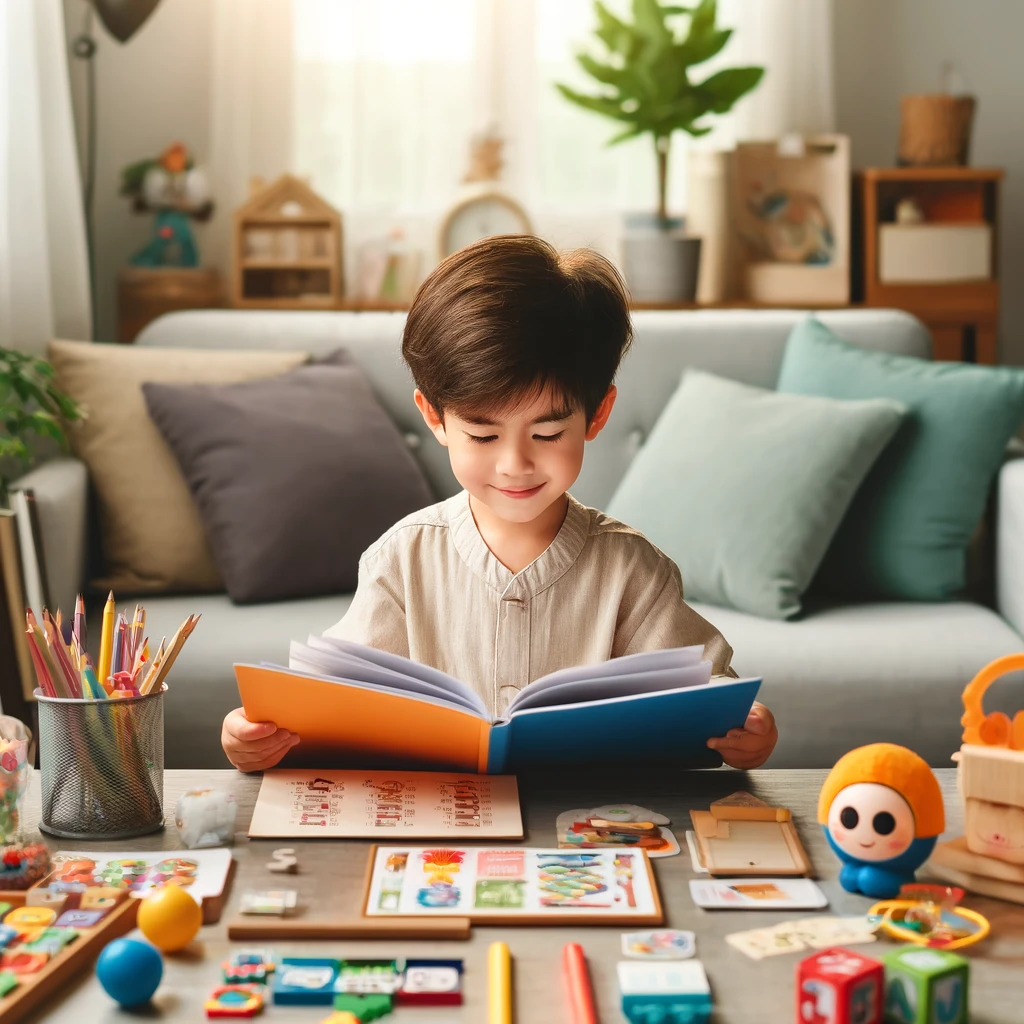घर पर बच्चों को पढ़ाने के लिए कुछ सरल और प्रभावी तरीके दिए जा रहे हैं, जो बच्चों की पढ़ाई को मजेदार और सरल बना सकते हैं:
1. दैनिक जीवन में शिक्षा का समावेश करें
बच्चों को केवल किताबों से नहीं, बल्कि उनके आस-पास की दुनिया से भी सीखने का अवसर देना चाहिए। जैसे:
- खरीदारी में गणना: बच्चों को सब्ज़ी या फल खरीदते समय पैसे गिनने का अभ्यास कराएं।
- खाना पकाने में मदद: बच्चों को समय और माप (जैसे कप, चम्मच) के बारे में सिखाएं।
- सड़क पर दिशा और संख्याएं: बच्चों को रास्ते पर घर का नंबर, गिनती, या कार के लाइसेंस प्लेट पर ध्यान देने के लिए प्रेरित करें।
2. सिखाने की प्रक्रिया को खेल जैसा बनाएं
बच्चों के लिए अध्ययन को मनोरंजक बनाने के लिए:
- पजल्स और बोर्ड गेम्स: बच्चों के लिए शैक्षिक पजल्स, चित्रों से जोड़ने वाले खेल और संख्याओं के खेल का उपयोग करें।
- कहानियाँ और नृत्य: बच्चों को कहानियों के माध्यम से सिखाएं और उन्हें भावनाओं, शब्दों और काव्य कला के बारे में समझाएं।
3. रचनात्मक गतिविधियाँ करें
- चित्रकारी और शिल्प: बच्चों को कला और शिल्प में भाग लेने का अवसर दें, इससे उनकी क्रिएटिविटी और मोटर स्किल्स विकसित होती हैं।
- स्वयं के प्रोजेक्ट: बच्चों से घर के आस-पास के पौधों का नाम बताने, या फिर किसी रचनात्मक प्रोजेक्ट पर काम करने को कहें। यह बच्चों में आत्मविश्वास और समस्या सुलझाने की क्षमता को बढ़ाता है।
4. समय का प्रबंधन सिखाएं
बच्चों को समय प्रबंधन के महत्व को समझाना बेहद महत्वपूर्ण है:
- समय निर्धारण: बच्चों को हर गतिविधि के लिए एक समय निर्धारित करने की आदत डालें, जैसे पढ़ाई, खेलने का समय, और आराम का समय।
- विविध कार्यों को जोड़ें: जब बच्चे कुछ भी नया सीखते हैं, तो उसे रोज़मर्रा के कार्यों से जोड़ने की कोशिश करें। उदाहरण के लिए, गिनती का अभ्यास करते समय आप बच्चों को अपने खिलौनों की गिनती करने के लिए कह सकते हैं।
5. प्रश्न पूछने के लिए प्रेरित करें
बच्चों को सवाल पूछने के लिए प्रेरित करना उन्हें ज्ञान की ओर अग्रसर करता है:
- खुला संवाद बनाए रखें: जब भी बच्चा कुछ पूछे, तो उसे आराम से और धैर्यपूर्वक उत्तर दें। यह उनके ज्ञान को और अधिक बढ़ावा देता है।
- सोचने की प्रक्रिया में मदद करें: बच्चों को खुद से सोचने और सवालों के उत्तर तक पहुंचने में मदद करें, बजाय सीधे जवाब देने के।
6. रोज़मर्रा की बातें पढ़ाई में शामिल करें
बच्चों को उनके रोज़ के अनुभवों से पढ़ाई के अवसर मिल सकते हैं:
- बच्चों से उनकी दिनचर्या के बारे में बात करें: इससे उनके भाषाई कौशल में वृद्धि होती है और वे समझ सकते हैं कि ज्ञान किस तरह से उनकी दुनिया से जुड़ा होता है।
- पढ़ने की आदत डाले: बच्चों को रोज़ाना किताबें पढ़ने की आदत डालें। आप उनके पसंदीदा पात्रों और किताबों के माध्यम से पढ़ने के प्रति उनका रुझान बढ़ा सकते हैं।
7. सकारात्मक प्रोत्साहन और पुरस्कार
बच्चों को प्रोत्साहित करने के लिए उन्हें अच्छा प्रदर्शन करने पर सराहना और पुरस्कार दें। यह उन्हें अच्छा करने के लिए प्रेरित करता है।
इन सरल और उपयोगी तरीकों से आप बच्चों को घर पर पढ़ाई के लिए प्रेरित कर सकते हैं और उनके शैक्षिक विकास में मदद कर सकते हैं।
Here are some simple and effective tips for teaching children at home, which can make their learning process fun and easy:
1. Incorporate Learning into Daily Life
Children should not only learn from books but also from the world around them. For example:
- Shopping for Counting: Involve children in counting money while buying fruits or vegetables.
- Cooking Together: Teach children about time and measurements (such as cups and spoons) while cooking.
- Street Directions and Numbers: Encourage kids to pay attention to house numbers, count cars, or notice street signs while walking.
2. Make Learning Fun through Games
Turn study time into playtime:
- Puzzles and Board Games: Use educational puzzles and number games to make learning interactive.
- Storytelling and Dance: Teach children through stories, rhymes, and songs, which help them learn new words and emotions.
3. Engage in Creative Activities
- Art and Craft: Give children opportunities to engage in painting, drawing, and crafts, which helps develop their creativity and motor skills.
- Self-Projects: Ask children to learn about plants or work on a simple DIY project at home. This boosts their confidence and problem-solving skills.
4. Teach Time Management
Teaching children about the importance of managing time is key:
- Set Timings for Tasks: Help kids organize their day with time allocated for activities like studying, playing, and resting.
- Incorporate Learning into Daily Tasks: For instance, while practicing counting, ask children to count their toys, or when solving problems, relate them to real-life scenarios.
5. Encourage Questioning
Encouraging children to ask questions is vital for their learning:
- Maintain Open Dialogue: Always answer their questions patiently and thoughtfully. This fosters their curiosity and learning.
- Guide Them to Think for Themselves: Instead of giving answers directly, help children think through problems to find solutions themselves.
6. Use Everyday Activities for Learning
Children can learn from everyday experiences:
- Talk About Their Routine: Discussing their day-to-day activities helps build their language skills and shows them how learning connects to the world around them.
- Instill Reading Habits: Encourage daily reading. You can start with their favorite books, which makes reading more enjoyable.
7. Positive Reinforcement and Rewards
Recognizing and rewarding children for their achievements motivates them to continue performing well:
- Praise Efforts: Always appreciate their hard work and achievements. This builds their confidence and encourages them to keep learning.
By applying these simple tips, you can make learning at home a positive experience and help children develop important skills that will aid them in their educational journey.
